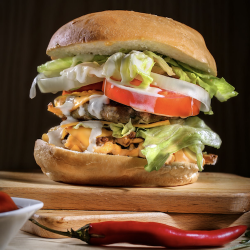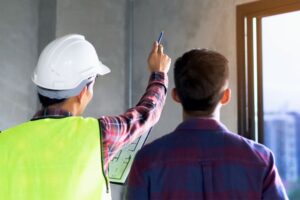When you think about the challenges restaurants face, you might envision concerns like food safety, customer satisfaction, and managing costs. However, there’s one invisible threat that often goes overlooked in the restaurant industry – radon gas. Radon is a naturally occurring, odorless, and colorless radioactive gas that can seep into buildings, including restaurants, and pose significant health risks to both employees and customers. To combat this unseen danger, restaurants need the expertise of radon specialists.
In this comprehensive guide, we’ll explore the reasons why restaurants should consider hiring radon specialists. We’ll delve into the science behind radon, its health risks, and the potential harm it can cause to restaurant staff and patrons. We’ll also discuss the regulatory landscape, the importance of radon testing, and how radon mitigation measures can not only protect the health of those in the restaurant but also safeguard the establishment’s reputation. Let’s dive into the world of radon and understand why it’s a serious concern for the restaurant industry.
Understanding Radon: What Is It and Where Does It Come From?
Before we can appreciate the importance of radon specialists, we must first understand what radon is and how it infiltrates our environment. Radon is a radioactive gas that is produced naturally when uranium in the soil and rocks decays. It is released into the air and can find its way into buildings through various pathways, such as:
Soil and Rock: Radon can seep through the ground and enter buildings through cracks and openings in the foundation.
Water: In some cases, radon can dissolve in underground water sources and be released into the air when the water is used indoors.
Building Materials: Certain building materials, like concrete and bricks, can contain traces of uranium, which can emit radon gas.
Health Risks Associated with Radon Exposure
Radon is a known carcinogen, and long-term exposure to elevated levels of radon gas can lead to serious health risks. These risks include:
Lung Cancer: Radon is the second leading cause of lung cancer after smoking. When radon gas is inhaled, it decays in the lungs, releasing tiny radioactive particles that can damage lung tissue over time.
Respiratory Problems: Even at lower levels, radon exposure can cause respiratory issues, particularly in individuals with pre-existing lung conditions.
Cardiovascular Effects: Recent research has suggested a link between radon exposure and cardiovascular problems, though more studies are needed to confirm this.
Given these health risks, it’s essential for restaurants to take radon exposure seriously, not only to protect their patrons but also their employees, who may spend long hours in these enclosed spaces.
Radon in Restaurants: A Hidden Threat
Restaurants are not exempt from radon infiltration. In fact, the unique characteristics of restaurant buildings can make them particularly vulnerable to radon buildup. These characteristics include:
Underground Spaces: Many restaurants have basements or underground storage areas, which are more prone to radon intrusion due to their proximity to the ground.
Ventilation: Restaurant kitchens often have powerful exhaust systems to remove cooking fumes, which can create a negative pressure environment, drawing radon from the ground into the building.
Hours of Operation: Restaurants often have extended operating hours, with employees spending significant time indoors, increasing their exposure to any radon present.
All of these factors make it critical for restaurant owners to consider radon as a potential threat to the health and safety of their staff and customers.
Regulatory Landscape: Radon and the Restaurant Industry
The regulatory landscape surrounding radon varies by location, but many regions have recognized the importance of addressing radon exposure. For instance, the United States Environmental Protection Agency (EPA) provides guidelines for radon measurement and mitigation. Some states and municipalities have their own radon regulations and requirements for testing and mitigation.
For restaurants, complying with these regulations is not just about legal obligations. It’s also about fulfilling their duty to protect the health and well-being of everyone on their premises. Radon specialists are well-versed in these regulations and can ensure that restaurants meet their legal requirements while keeping their establishments safe.
The Role of Radon Testing
One of the most crucial steps in managing radon in restaurants is radon testing. Radon specialists use sophisticated equipment to measure radon levels within the building. This testing can reveal whether a restaurant is at risk and, if necessary, determine the extent of the problem. Testing should be conducted regularly, particularly in areas where radon exposure is known to be a concern.
The benefits of radon testing in restaurants include:
Health Protection: Testing ensures that staff and customers are not exposed to dangerous radon levels.
Liability Mitigation: If an issue is detected and addressed promptly, it can reduce the restaurant’s liability in the event of health problems related to radon exposure.
Reputation Management: Proactive testing and mitigation demonstrate a commitment to safety, which can enhance a restaurant’s reputation.
Radon Mitigation: Protecting Your Restaurant and Your Reputation
If radon testing reveals elevated levels of radon in a restaurant, mitigation measures become essential. Radon specialists are experts in designing and implementing mitigation systems tailored to the specific needs of the restaurant.
Common radon mitigation techniques include:
Sub-Slab Depressurization: This method involves creating a vacuum beneath the building’s foundation to prevent radon from entering.
Ventilation Systems: Improving the restaurant’s ventilation can help dilute and remove radon gas.
Sealing Entry Points: Radon specialists can identify and seal openings where radon may be entering the building.
The importance of mitigation goes beyond health protection. It’s also a matter of preserving the restaurant’s reputation. News of radon issues can spread quickly and damage an establishment’s image. A proactive approach to mitigation not only protects health but also safeguards the restaurant’s brand and customer trust.
The Cost of Not Hiring Radon Specialists
Some restaurant owners may hesitate to invest in radon specialists due to concerns about the cost. However, the cost of not addressing radon issues can be much higher in the long run. Consider the following:
Healthcare Expenses: The healthcare costs associated with treating radon-related illnesses can be substantial.
Legal Liabilities: Failure to address radon issues can lead to costly lawsuits.
Reputation Damage: Negative publicity and customer concerns can lead to a loss of revenue and long-term harm to the restaurant’s reputation.
In contrast, hiring radon specialists is a proactive measure that not only protects against these potential expenses but also enhances the restaurant’s image as a responsible and safe establishment.
The Path Forward: Making Radon Safety a Priority
Restaurants face numerous challenges daily, but the invisible threat of radon should not be underestimated. Protecting the health of employees and customers and safeguarding the reputation of the establishment should be a top priority for every restaurant owner. Radon specialists play a crucial role in achieving these goals by:
Identifying and measuring radon levels.
Designing and implementing effective mitigation strategies.
Ensuring compliance with local regulations.
Providing ongoing support and testing.
Conclusion
In the restaurant industry, safety and reputation are paramount. Radon gas, while invisible, poses a significant threat to both of these pillars. By enlisting the expertise of radon specialists, restaurant owners can take proactive steps to protect the health of their staff and patrons and preserve the integrity of their establishment.
Remember, the cost of not hiring radon specialists is far greater than the investment required to ensure radon safety. It’s not just about following regulations; it’s about demonstrating a commitment to health and safety that can ultimately enhance the restaurant’s image and success. As we continue to advance in our understanding of radon and its impact, restaurant owners must take every measure to ensure a safe and healthy environment for all.


